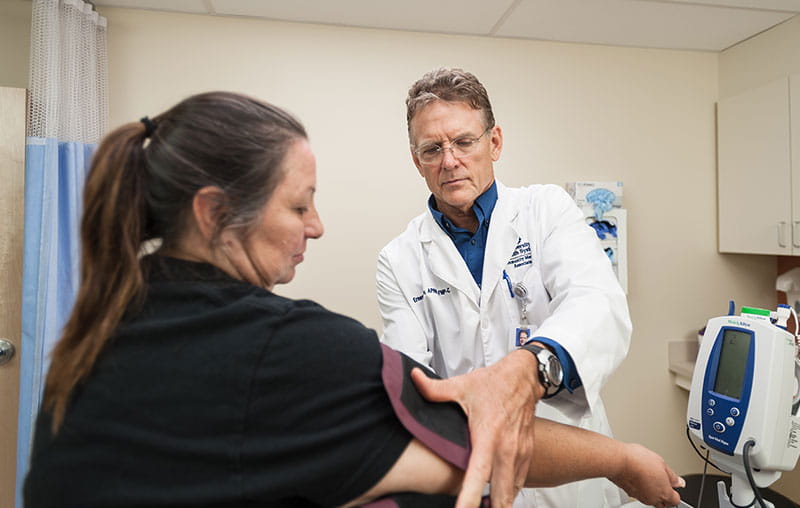For better or for worse, there are many qualities you’ll continue to receive from your parents throughout your lifetime. Studies have found that your driving abilities, your pain tolerance and even your love of coffee can all be based on your genetics.
Genetics can also play a role in determining the likelihood that you’ll develop certain diseases, like diabetes.
Is Diabetes Genetic?
Yes, diabetes is genetic. That is why it’s important to understand your risk of developing diabetes.
“There’s a very strong family component to Type 2 diabetes,” says Dr. Alberto O. Chavez, an endocrinologist at the University Health Texas Diabetes Institute in San Antonio. Dr. Chavez says if you have one parent who has Type 2 diabetes, your risk of becoming diabetic in your lifetime goes up by 30-40%. If both of your parents have Type 2 diabetes, your risk is higher than 50% of becoming diabetic at some point in your life.
Environmental Factors Impacting Diabetes
While Types 1 and 2 diabetes can run in a family, what eventually triggers the disease to become active in a person’s body is an environmental factor, such as:
- Activity level
- Dietary patterns
- Weight
- Age
- Blood pressure
- Cholesterol
Because genetics and lifestyle play a role in developing diabetes, early detection is key.
Prevent Diabetes by Starting Early
In order to prevent or delay diabetes, it is recommended that everyone get tested by the time they reach the age of 45. However, people as young as 20 should get their sugar levels tested if they have a strong family history of Type 1 or Type 2 diabetes.
“Do not wait," Dr. Chavez said. "If you realize you have some of the risk factors, take a proactive approach and make some lifestyle changes. Once you hit the diabetes number, the diagnosis stays with you forever, and then the focus is on treatment and preventing complications."
How To Lower Your Risk of Diabetes
Because it’s generational, diabetes rarely affects just one person. The strong hereditary component means everyone in the family can benefit from interventions. Here are five ways you can prevent diabetes:
- Know your risk. This can help you make changes early to prevent the onset of diabetes. Find out your risk for Type 2 diabetes by answering a few questions in our health risk assessment.
- Read labels. You may find that a food you considered to be healthy is actually loaded with carbs, sugar, sodium or unhealthy additives. By learning how to read food labels, you’ll be able to make sure what you eat is rich in nutrients and not too heavy in unhealthy ingredients.
- Keep a food diary. Food tracking is helpful for weight loss, but it’s also a great way to make sure you’re getting the nutrients your body needs to stay healthy. Apps like MyFitnessPal and MyNetDiary make it easy to track calories on the go.
- Get active. While any form of activity is beneficial for weight loss and diabetes prevention, people looking to burn sugar can benefit from additional resistance training. Because the muscles are responsible for burning sugar, lifting weights and doing resistance training — with proper supervision — can go a long way.
- Eat a balanced diet. It’s a myth people with diabetes can’t eat the foods they love. They key is improving their diet through portion control and balancing their nutrient intake — particularly carbohydrates, fats and proteins. It also helps to find delicious, dietitian-approved recipes.
If you have a family history of diabetes, talk to your primary care provider about getting tested. From there, they will help you determine the best treatment plan.
Diabetes Care at Texas Diabetes Institute
Through a multi-disciplinary approach to treatment, health promotion, patient education, professional training and research, the Texas Diabetes Institute represents America’s largest and most comprehensive center completely dedicated to the prevention and treatment of diabetes.
Community Resources
We are also taking steps to address community needs within Bexar County. This is why we are excited to offer resources for everyone, whether you receive care from us or not. Visit our Institute for Public Health for diabetes-related resources.





